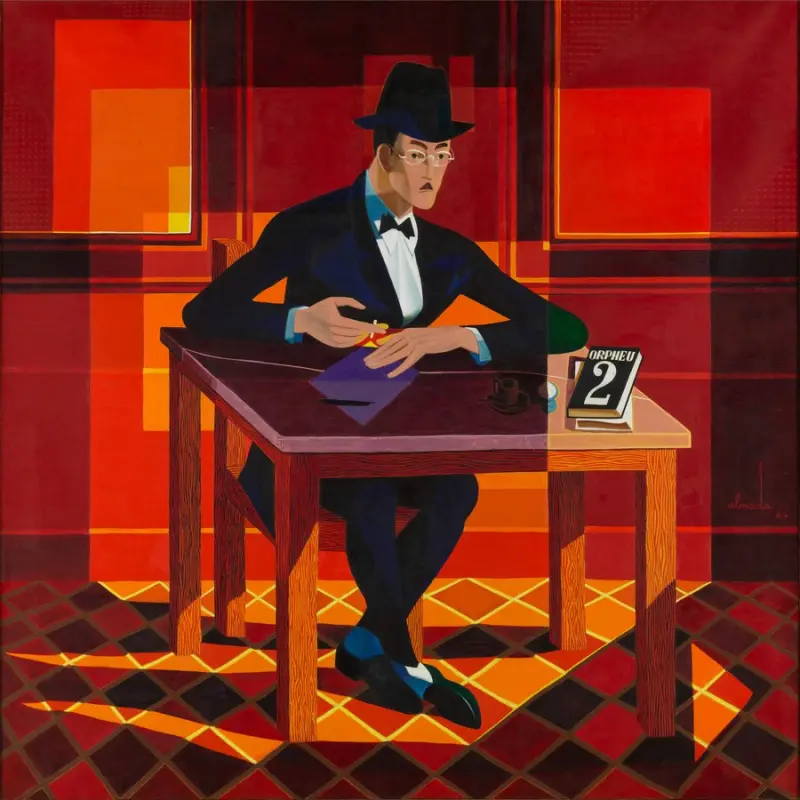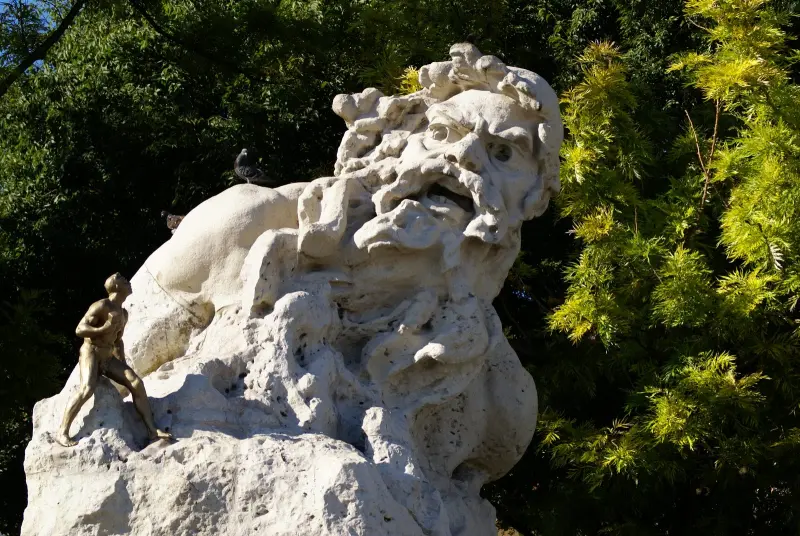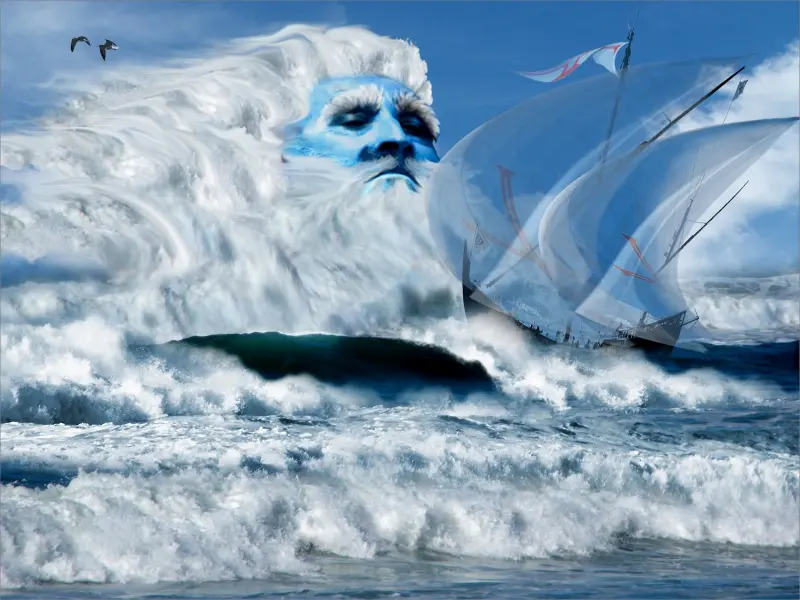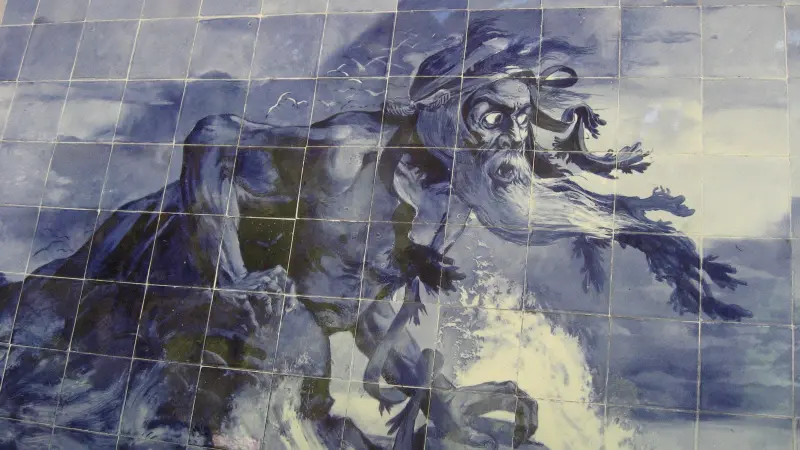Why M0streng0 as a pseudonym?
 The pseudonym m0streng0 comes from the name mostrengo, a poem written by Fernando Pessoa, one of the most important Portuguese poets of the 20th century. This poem is part of the work “Mensagem”, which was published in 1934.
The pseudonym m0streng0 comes from the name mostrengo, a poem written by Fernando Pessoa, one of the most important Portuguese poets of the 20th century. This poem is part of the work “Mensagem”, which was published in 1934.
The “mostrengo” is a legendary creature that symbolizes the dangers and challenges faced by Portugal throughout its history. The poem describes the creature as something terrible and frightening that lurks, representing the external threats that the country has had to face over the centuries.
The poem’s message can be interpreted as a call to national consciousness and the need to bravely face challenges and adversity. Pessoa often explored themes related to national identity, history and mythology in his poetry, and “Mensagem” is a work that reflects these concerns.
Fernando Pessoa’s poem is as follows (translated) :
THE MOSTRENGO
The sea monster that dwells at the end of the sea,
In the pitch-black night, arose to fly;
Around the ship, it flew three times,
It flew three times, screeching,
And said, « Who dares to enter
My caves that I don't unveil,
My black ceilings from the world's end? »
And the helmsman said, trembling,
« King Dom João the Second! »
« Whose sails are those against which I rub my skin?
Whose keels are those I see and hear? »
Said the sea monster, and it circled three times,
Thrice it circled, foul and massive,
« Who dares to possess what only I can,
For I dwell where no one has ever seen me,
And I pour forth the fears of the bottomless sea? »
And the helmsman trembled, and said,
« King Dom João the Second! »
Thrice from the helm, he raised his hands,
Thrice to the helm, he reproached them,
And said, at the end of trembling three times:
« Here at the helm, I am more than myself:
I am a People that desires the sea that is yours;
And more than the sea monster that my soul fears,
And circles in the darkness of the world's end;
The will commands, which binds me to the helm,
To King Dom João the Second! »
Mensagem. Fernando Pessoa.
And the original:
O MOSTRENGO
O mostrengo que está no fim do mar
Na noite de breu ergueu-se a voar;
À roda da nau voou três vezes,
Voou três vezes a chiar,
E disse: « Quem é que ousou entrar
Nas minhas cavernas que não desvendo,
Meus tetos negros do fim do mundo? »
E o homem do leme disse, tremendo:
« El-Rei D. João Segundo! »
« De quem são as velas onde me roço?
De quem as quilhas que vejo e ouço? »
Disse o mostrengo, e rodou três vezes,
Três vezes rodou imundo e grosso,
« Quem vem poder o que só eu posso,
Que moro onde nunca ninguém me visse
E escorro os medos do mar sem fundo? »
E o homem do leme tremeu, e disse:
« El-Rei D. João Segundo! »
Três vezes do leme as mãos ergueu,
Três vezes ao leme as reprendeu,
E disse no fim de tremer três vezes:
« Aqui ao leme sou mais do que eu:
Sou um Povo que quer o mar que é teu;
E mais que o mostrengo, que me a alma teme
E roda nas trevas do fim do mundo;
Manda a vontade, que me ata ao leme,
De El-Rei D. João Segundo! »
Mensagem. Fernando Pessoa.
Here are some representations of the mostrengo:




Okay… But the real reason?
Right, you’re right… So far it’s just been the story behind the name mostrengo and not the reason for it.
In Portuguese we study the works of Fernando Pessoa, including the poem O Mostrengo. And the truth is that it was precisely then that the pesudonym mostrengo appeared, which later became m0streng0.
My best friend and I were testing a new Battleship game on our cell phones, and we had to choose a pseudonym, so I instinctively chose mostrengo and my friend adamastor (the same sea monster, but from another author - Luís de Camões, in Os Lusíadas - 1572).
And after that episode, I’ve kept the pseudonym to this day… My friend, unfortunately :rofl: didn’t follow the same path!